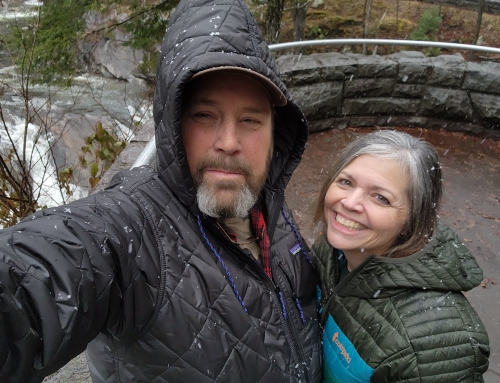
By Ashley Abedini
I opened my eyes to find myself lying on a hospital bed. This was not exactly a new experience for me; I have a chronic illness called Cystinosis, a metabolic disorder that has led to health issues, most notably kidney failure. As a result of this, I had to go on dialysis for about a year, leading to frequent hospital stays. I was diagnosed at just six months, so it is something that has been a pivotal part of my life. The hospital bed, cold blank walls, and countless nurses were a familiar sight. This hospitalization was quite different though. I signed myself in that night for what I would later learn was a manic episode, and I left the facility with a diagnosis of bipolar type 1.
That hospitalization was more than 10 years ago. My psychosis from bipolar came extremely suddenly and unexpectedly. I had never shown any behavior or mental health problems prior, so my family and I needed much convincing. One day I went from living a fairly productive and healthy life, and the next I was having such wild and impulsive thoughts that ultimately led me to getting checked in at the hospital. It was very hard to understand; I wasn’t really exposed to bipolar in any way until I got my diagnosis. It took research, many therapy sessions, and enough time to really process my diagnosis and accept it.
It has not been easy, but with continued effort, effective medication, intentional planning, and therapy I have been able to effectively manage my illness, despite the eventual challenging times. I have learned it is only when you are vulnerable about your own struggles that others may feel comfortable enough to share theirs. After sharing my story, I discovered many close to me were struggling with their own mental health turmoil, and simply felt embarrassed sharing. Through this I realized that although my experiences might have been unique to me, I was not the only one suffering.
I believe strongly that our purpose is tied to our struggle, and that anyone can bloom, despite growing in the harshest of conditions. Struggle is such a fundamental part of the human experience. If we look hard enough, we can see that everyone is fighting their own distinctive battle. True power is when you are able to transcend your struggle through purpose. As Nietzsche stated: “He who has a why to live for can bear almost any how.” True success is overcoming trauma, and not only succeeding, but helping others along the way. Many people wait to seek treatment out of shame. Although awareness is increasing, and many strides are being made to increase exposure to the mainstream, mental health is still heavily stigmatized.
My advice for those with chronic illness is to be aware of their mental health. It can be so easy to overlook how we are  feeling since it is invisible and not something we are actively forced to pay attention to for literal survival like our scheduled doctor visits, many medications, and constant checkups. We often have to be in survival mode for much of our life because of our illness that we may not see the need to point out problems if they are not causing an emergency or immediate concern. However, the last thing you want to be doing is being forced to address an issue that has now festered into a big problem. Although it was hard to tell at the time, it would have been great to have a therapist during dialysis. My mind was just trying so hard to survive that at the time I did not realize the amount of trauma I was experiencing. In addition, I think it is important to know trusted loved ones that you can openly communicate with and maintain consistent communication with them. It is often our friends and family that can help point out if we are acting a little “off.” I now have a strong support system set up that I feel comfortable going to, but also people that know me well enough to know if I am becoming a bit more maniac. Chronic illness and mental health are so immensely correlated, and it is important to be aware of this to help make the best path possible in your life. Living with chronic illness is hard, but it is a lot easier when I have been able to understand my mental health better.
feeling since it is invisible and not something we are actively forced to pay attention to for literal survival like our scheduled doctor visits, many medications, and constant checkups. We often have to be in survival mode for much of our life because of our illness that we may not see the need to point out problems if they are not causing an emergency or immediate concern. However, the last thing you want to be doing is being forced to address an issue that has now festered into a big problem. Although it was hard to tell at the time, it would have been great to have a therapist during dialysis. My mind was just trying so hard to survive that at the time I did not realize the amount of trauma I was experiencing. In addition, I think it is important to know trusted loved ones that you can openly communicate with and maintain consistent communication with them. It is often our friends and family that can help point out if we are acting a little “off.” I now have a strong support system set up that I feel comfortable going to, but also people that know me well enough to know if I am becoming a bit more maniac. Chronic illness and mental health are so immensely correlated, and it is important to be aware of this to help make the best path possible in your life. Living with chronic illness is hard, but it is a lot easier when I have been able to understand my mental health better.
Ashley Abedini is the owner of Abedini Social, a social media agency, and currently lives in Wichita, Kansas. A creative marketer, Ashley is known for her innovative approach, direct communication, and skill with executing strategy. Ashley is a devoted foodie and culinary explorer spotlighting Wichita’s hole-in-the-wall restaurants on her popular social media account, ICT Broke Girls. Her passion is working with local restaurants to help them use social media to connect with a highly engaged online community. She had her kidney transplant over ten years ago, receiving the life-saving gift from a gracious friend, and has been in good health since, although still dealing with the typical restraints of her rare disease, Cystinosis.




